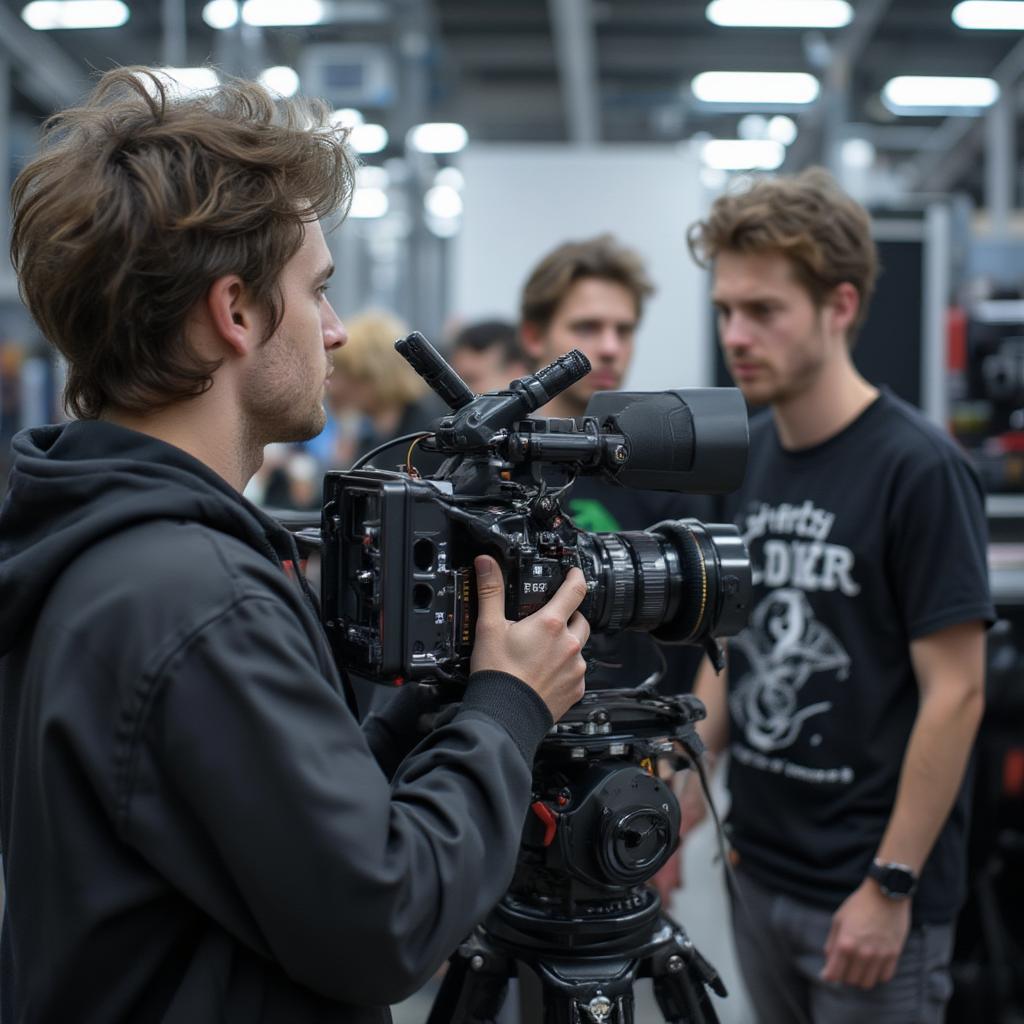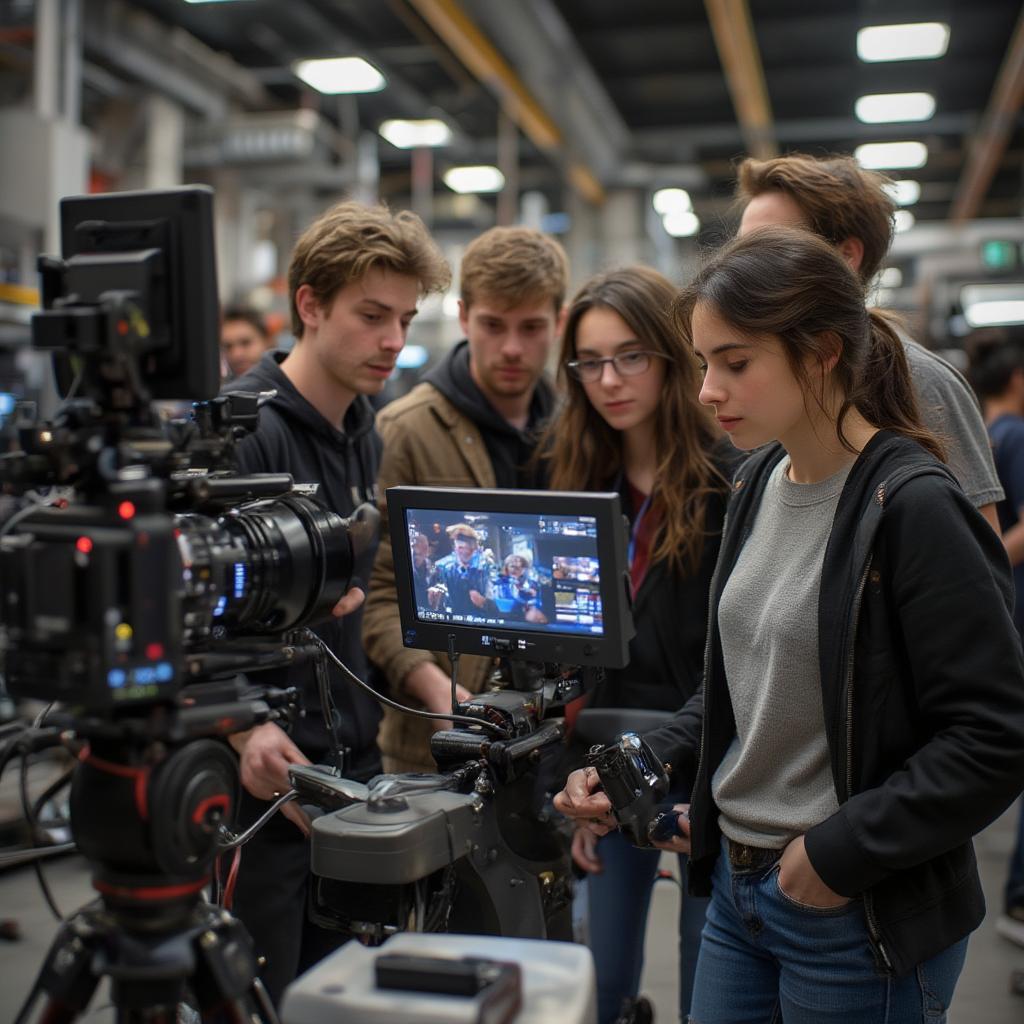Best Film Schools for Cinematography: A Comprehensive Guide

Cinematography is the art of visual storytelling through motion picture. It’s the language of film, conveying emotions, atmosphere, and narrative through carefully crafted shots, lighting, and composition. Aspiring cinematographers need a solid foundation in both the technical and artistic aspects of filmmaking. Choosing the right film school is crucial for honing your skills and launching a successful career. This guide explores the Best Film Schools For Cinematography, providing insights into their programs, faculty, and alumni network to help you make an informed decision. online film making courses
Factors to Consider When Choosing a Cinematography School
Before diving into specific schools, let’s outline the key factors to consider when choosing the best fit for your cinematography aspirations.
Curriculum and Specializations
A strong cinematography program should offer a comprehensive curriculum covering various aspects of filmmaking, including:
- Cinematography Fundamentals: In-depth exploration of camera operation, lighting techniques, composition, and visual storytelling principles.
- Advanced Cinematography: Specialized courses in areas like digital cinematography, high-speed cinematography, underwater cinematography, and aerial cinematography.
- Hands-on Experience: Ample opportunities for practical application through student film projects, internships, and collaborations with industry professionals.
- Post-Production Workflow: Understanding the post-production process, including color grading and visual effects, to ensure your vision translates seamlessly onto the screen.
Faculty and Mentorship
Learning from experienced professionals is essential. Look for schools with faculty who are accomplished cinematographers with a strong industry background. Mentorship opportunities and small class sizes can provide personalized guidance and feedback.
Equipment and Facilities
Access to state-of-the-art equipment and facilities is crucial for honing your craft. This includes professional-grade cameras, lenses, lighting kits, sound equipment, and editing suites.
Top Film Schools for Cinematography Worldwide
American Film Institute (AFI) Conservatory
Located in Los Angeles, the AFI Conservatory is renowned for its rigorous and immersive filmmaking program. Its cinematography program focuses on visual storytelling and collaboration, providing students with extensive hands-on experience.
California Institute of the Arts (CalArts)
CalArts, known for its experimental and interdisciplinary approach to art education, offers a highly regarded cinematography program that encourages creative exploration and individual expression.
New York University Tisch School of the Arts
NYU Tisch is a global leader in film education, with its cinematography program offering a diverse range of courses and specializations, including documentary and experimental filmmaking.

Beyond the Big Names: Exploring Other Excellent Options
While the aforementioned schools are highly prestigious, there are many other excellent film schools worldwide that offer strong cinematography programs. These include:
- National Film and Television School (NFTS) in the UK: Renowned for its practical and industry-focused approach.
- La Fémis in France: A leading film school in Europe known for its rigorous academic curriculum and strong ties to the French film industry. film and tv production colleges
- Film and Television Institute of India (FTII): A prestigious institution that has produced some of India’s most celebrated filmmakers.
The Importance of Networking and Building Your Portfolio
A strong portfolio showcasing your skills and creativity is essential for landing jobs in the competitive film industry. Film school provides a valuable platform for networking with fellow filmmakers, faculty, and industry professionals, building connections that can lead to future collaborations and employment opportunities. film schools around the world

Navigating the Admissions Process
Applying to film school can be a competitive process. Most schools require a portfolio of your work, academic transcripts, letters of recommendation, and a personal statement outlining your passion for cinematography and your career goals.
The Future of Cinematography: Embracing New Technologies
The field of cinematography is constantly evolving with the advent of new technologies. Leading film schools are incorporating emerging trends like virtual production, AI-powered filmmaking tools, and immersive storytelling into their curricula, preparing students for the future of the industry.
David Fincher, a visionary filmmaker known for his innovative approach to cinematography, once said, “Technology should serve the story, not the other way around.” This quote highlights the importance of mastering the fundamental principles of visual storytelling while embracing new tools and techniques.

Conclusion: Choosing Your Path to Cinematic Excellence
Choosing the right film school for cinematography is a significant step in your journey toward a fulfilling career in the film industry. By carefully considering the factors outlined in this guide and thoroughly researching different programs, you can find the best fit for your individual needs and aspirations. Remember to prioritize hands-on experience, faculty expertise, and a curriculum that prepares you for the challenges and opportunities of this dynamic and ever-evolving field. best film schools worldwide] film making courses online

FAQ: Frequently Asked Questions about Film Schools for Cinematography
- What is the average cost of tuition for film school? Tuition fees vary widely depending on the school and program.
- Do I need a bachelor’s degree to apply to film school? Most film schools require a bachelor’s degree, but some may accept applicants with significant professional experience.
- What are the career prospects for cinematographers? The job market for cinematographers is competitive, but talented and skilled individuals with strong portfolios can find opportunities in film, television, advertising, and other media industries.
- How long does it take to complete a film school program? Most film school programs range from two to four years.
- What kind of portfolio should I submit with my application? Your portfolio should showcase your best cinematography work, demonstrating your technical skills and artistic vision.
- Are there scholarships available for film school? Many film schools offer scholarships and financial aid to qualified students.
- What is the difference between a cinematographer and a director of photography? The terms are often used interchangeably, but “director of photography” is typically used in feature films, while “cinematographer” is more common in other media.
- What are some essential skills for aspiring cinematographers? Essential skills include technical proficiency with cameras and lighting, a strong understanding of visual storytelling, and excellent communication and collaboration skills.
- How important is networking in the film industry? Networking is crucial for building connections and finding job opportunities in the film industry.




